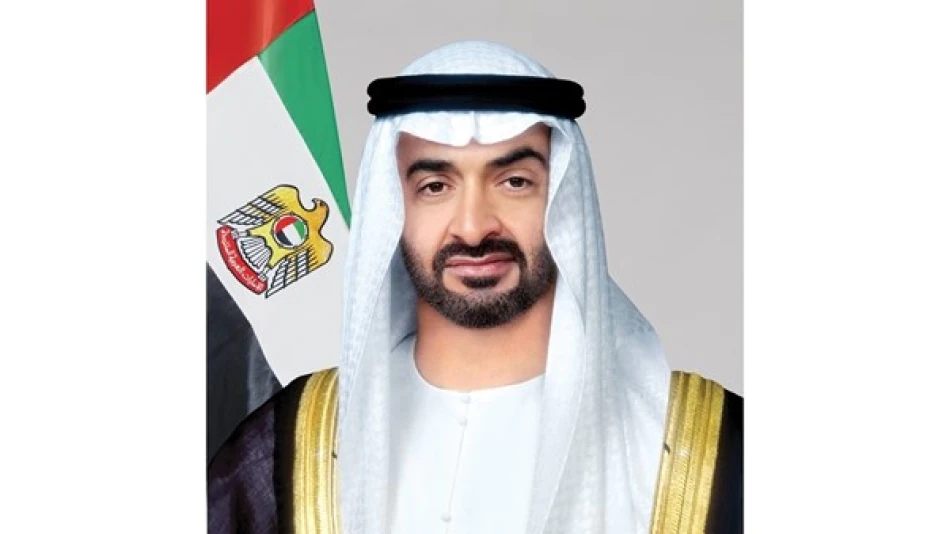
UAE President Welcomes Ruler of Umm Al Quwain for High-Level Talks
UAE Leadership Reinforces Federal Unity in High-Level Strategic Meeting
UAE President Sheikh Mohammed bin Zayed Al Nahyan hosted a significant gathering with Umm Al Quwain's ruler Sheikh Saud bin Rashid Al Mualla, emphasizing the federation's commitment to citizen-centric development and national cohesion. The meeting, attended by key federal and emirate leaders, signals the UAE's continued focus on coordinated governance as regional competition for talent and investment intensifies.
Strategic Dialogue Centers on Human Capital Investment
The meeting at Al Bahar Palace in Abu Dhabi brought together the UAE's top leadership to discuss national priorities, with particular emphasis on citizen welfare and development strategies. The discussions reinforced the leadership's philosophy that investing in Emirati citizens remains fundamental to the nation's long-term prosperity and competitive advantage.
This approach reflects the UAE's broader strategy of building a knowledge-based economy while maintaining its position as a regional hub. Unlike many resource-dependent economies in the Gulf, the UAE has consistently prioritized human capital development as a cornerstone of its post-oil economic vision.
Federal Coordination Strengthens Amid Regional Competition
Unity Through Structured Governance
The high-level attendance, including crown princes from multiple emirates and senior federal ministers, demonstrates the UAE's commitment to coordinated policymaking across its seven-emirate federation. This unified approach has become increasingly important as neighboring countries like Saudi Arabia and Qatar pursue ambitious national transformation programs.
The presence of key figures including Abu Dhabi Crown Prince Sheikh Khaled bin Mohamed bin Zayed Al Nahyan and Deputy Prime Minister Sheikh Mansour bin Zayed Al Nahyan underscores the strategic nature of these discussions, moving beyond ceremonial meetings to substantive policy coordination.
Market and Investment Implications
For international investors and businesses, such displays of federal unity signal policy stability and coordinated economic planning. The UAE's federal structure, while sometimes complex for outsiders to navigate, has proven effective in maintaining consistent investment climates across emirates while allowing for specialized economic zones and initiatives.
This governance model has enabled the UAE to maintain its competitive edge in attracting foreign direct investment, with each emirate leveraging its strengths while contributing to national objectives. The emphasis on citizen development also indicates continued focus on creating a skilled local workforce, potentially affecting labor market dynamics and business planning for multinational corporations.
Long-term Strategic Positioning
The meeting's focus on preserving national achievements while planning future development reflects the UAE's mature approach to governance after five decades of federation. This balance between continuity and innovation has characterized the country's rise from a collection of trading ports to a global business and cultural hub.
As regional powers reshape their economies and global supply chains evolve, the UAE's emphasis on coordinated leadership and citizen-centric policies positions it to maintain its role as a stable, business-friendly destination in an increasingly competitive Middle Eastern landscape.
Most Viewed News

 Layla Al Mansoori
Layla Al Mansoori






